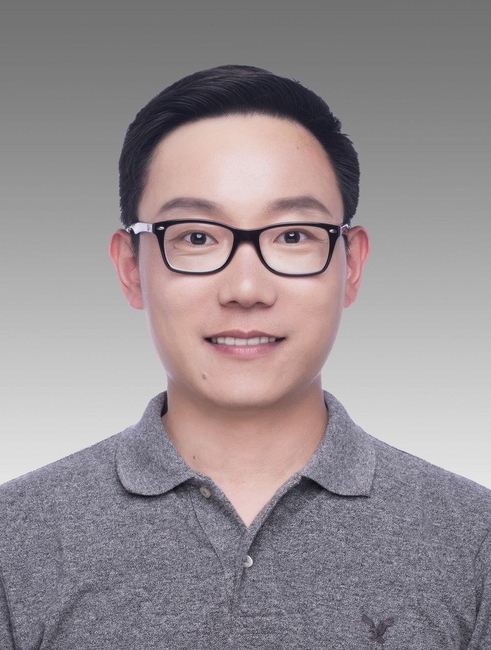Keynote Speakers
Keynote Speakers

Prof. Manhua Liu
Shanghai Jiao Tong University, China
Manhua Liu is currently a Professor in the Artificial Intelligence Institute, Shanghai Jiao Tong University, China. She received the Ph.D. degree from Nanyang Technological University, Singapore in 2007. Before Joining Shanghai Jiao Tong University, she was a post-doc research fellow at Nanyang Technological University. From August 2008 to now, she worked in Shanghai Jiao Tong University. From 2011 to 2012, she visited the bioinformatics center of the medical school at the University of North Carolina at Chapel Hill. Her research interests include multimodal medical image computing and analysis, 3D object reconstruction, brain image computing and analysis, machine vision and pattern recognition so on. She has published more than 70 SCI/EI papers in top journals and conference proceedings such as Nature Machine Intelligence, Pattern Recognition, IEEE Trans, Neuroimage, Human Brain Mapping etc.. A paper is selected as a highly cited paper. As the Principle Investigator, she has also collaborated on several NSFC projects, National Key Research and Development Program sponsored projects, and Shanghai Natural Science Funding project, etc. She was the program chair for ICIT2020-2023.

Prof. Leida Li
Xidian University, China
Li Leida is a Professor and Doctoral Supervisor at Xidian University, recognized as a National Young Talent and a High-Level Talent in Shaanxi Province. His main research interests include computer vision, visual quality assessment, and computational aesthetics. He has published over 90 papers in journals and conferences such as IEEE TPAMI, TIP, CVPR, ICCV, and AAAI, which are categorized as Chinese Academy of Sciences Zone 1 and CCF Category A. His work has been cited over 9,100 times, with an H-Index of 51. He has led five projects supported by the National Natural Science Foundation of China and has engaged in industry-academia collaborations with companies such as Huawei, OPPO, and Tencent. He was awarded the "Outstanding Industry-Academia Collaboration Partner" by OPPO, and his research outcomes have been applied in OPPO ColorOS, live-streaming cameras, and other products. He has received five provincial-level awards, including the Shaanxi Provincial Natural Science First Prize and the Jiangxi Provincial Natural Science First Prize. He serves as an Associate Editor for several international journals, including IEEE Transactions on Image Processing, and as an Area Chair/Senior Program Committee member for international conferences such as AAAI, IJCAI, and ACM MM. He is currently a Senior Member of IEEE, CCF, and CSIG.

Prof. Tong Huang
University of Technology Sydney, Australia
A/Prof Tony Huang is currently the Director of the Data Science and Innovation courses at the UTS Transdisciplinary School (TD School) and an Executive Committee member of the UTS Visualisation Institute. Prior to joining UTS, he led the Human-Data Interaction Program at the Swinburne Data Science Research Institute. He is a data science researcher with expertise in visual data analytics and human-computer (data) interaction. His work focuses on designing visualisations, user interfaces, and interaction methods that account for human factors, enabling the integration of human intelligence with machine learning techniques to develop AI-powered, data-driven solutions that support effective exploration, communication, and decision-making. Dr Huang holds a PhD degree in Computer Science, with training in Experimental Psychology and professional experience in Psychometrics. He is an author of over 150 publications including books entitled “Handbook of Human Centric Visualisation” and “Human Factors in Augmented Reality Environments”. Dr Huang’s research has been supported by Australian government funding agencies and commercial industry partners with a total value of over 3 million dollars including highly prestigious and competitive ARC Discovery and Linkage projects, and has achieved impact both in academia and in industry. He gives keynote/plenary speeches, invited talks and seminars at conferences and universities worldwide, and has been named among the Standford's top 2% scientists worldwide each year since 2020. Dr Huang leads a research team comprising PhD students, visiting scholars, and postdoctoral researchers engaged in a range of research and industry projects. The team focuses on: 1) Developing interactive visualisations/interfaces to facilitate human-data interaction—supporting business analytics in knowledge discovery and communication of analytical findings to stakeholders for informed decision-making. This work aims to strengthen the role of the human-in-the-loop in data analytics. 2) Combining traditional data-driven techniques—such as machine learning and statistical methods—with interactive visualisations for the design and development of methodologies and tools that integrate human creativity and innovation into sustainable data analytics practices. 3) Collaborating with industry partners on projects that deliver compelling visualisations, effective interactions, optimal analytical methods, and robust engineering solutions—transforming research insights into real-world impact across domains including health, biology, business, finance, social sciences, education, and manufacturing. Dr Huang is currently Associate Editor of Behaviour and Information Technology Journal, and a co-chair of the award-winning technical committee on Visual Analytics and Communication for IEEE SMC Society. He was an Editorial Board Member of Journal of Computer Languages, Steering Committee Chair for International Conference on Information Visualisation, Associate Editor-in-Chief of Journal of Visual Languages and Computing and a guest editor for a number of SCI indexed journals. He is a grant proposal assessor for Natural Sciences and Engineering Research Council of Canada (NSERC), Dutch Research Council (NWO) and Australian Research Council (ARC), and an examiner of PhD theses for a number of top Australian universities. He has served as a conference chair, a program committee chair, or an organization chair for a number of international conferences and workshops. He was a general chair for the ACM Symposium on Spatial User Interaction (SUI) in 2023 and 2024. He is a general co-chair of the 19th IEEE Pacific Visualization Conference (PacificVis) and the 24th Australasian Data Science and Machine Learning Conference (AusDM), to be held in Sydney in 2026.